It’s easy to forget that the stuff we say about ourselves—offhand comments, half-jokes, throwaway lines—has power.

Say something often enough and your brain starts to believe it, and so do the people around you. While some of it might feel like harmless self-awareness, it can end up boxing you in and ultimately holding you back. Here’s what that actually looks like, and how you can change the script without feeling fake or overly positive. After all, you deserve to feel as amazing as you are, flaws and all.
1. “I’m just not a confident person.”

Most people don’t start confident—they build it slowly, after doing hard or awkward things over and over. But when you describe yourself like confidence just isn’t in your DNA, you stop giving yourself chances to prove otherwise.
Saying something like “I’m working on being more comfortable in my skin” still feels true, but it opens a door instead of closing one. Confidence grows from there—not from forcing it, but from trying anyway.
2. “I’m lazy” or “I’m a mess.”

This stuff usually doesn’t come from truth—it comes from feeling overwhelmed or not measuring up. It becomes a label, not just a mood. You say it enough, and it becomes part of your identity, even if it’s not fair. It’s way more honest (and useful) to say, “I’ve been feeling off lately,” or “I’ve had a rough patch with keeping things together.” That kind of language makes space for change without piling on guilt.
3. “I’ve always been like this.”
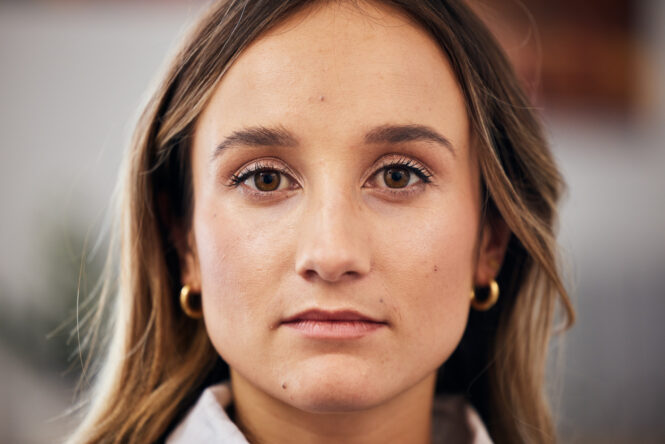
This one’s sneaky. It sounds factual, but it’s often just a way to stay safe. When you decide something is permanent, it’s easier to stay where you are, even if you’re not happy there. It’s okay to have a past, but you don’t need to drag it everywhere. Try: “That’s been true for me before, but I’m trying something new now.” It’s softer, but it leaves room to grow.
4. “I’m too much.”

That’s usually not your voice—it’s someone else’s opinion you’ve internalised. You were probably passionate, curious, emotional, expressive… and someone called it ‘too much’ because they didn’t know how to handle it. If you’ve ever felt like you had to tone it down to be liked, that’s not a flaw in you. It’s a sign you might’ve been in the wrong space. “I feel a lot, and that’s part of who I am” is a good place to start flipping that script.
5. “I’m bad with money.”
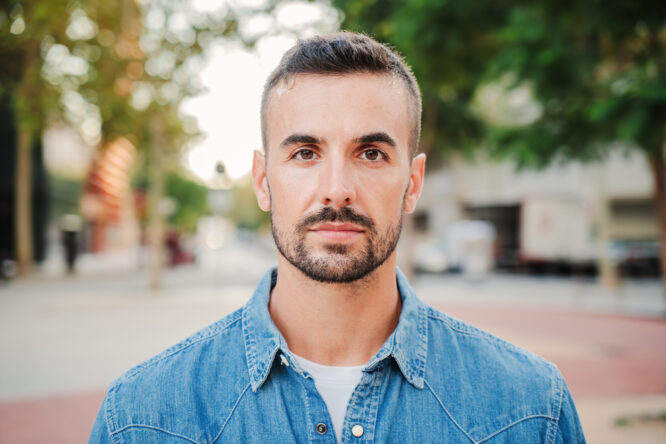
This one sticks fast because it feels shamey and permanent. It’s often rooted in never being taught how to manage money or growing up without it. Of course, calling yourself bad at it stops you from learning. A better version? “I didn’t learn this stuff early on, but I’m figuring it out now.” That way you’re not dragging your past into your future budget.
6. “I’m just joking” (but not really).
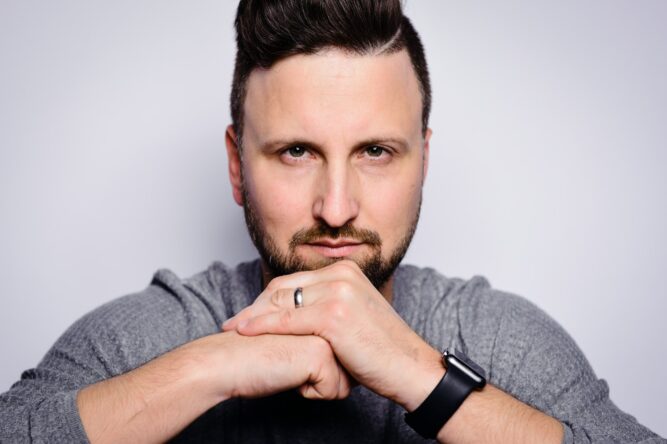
Self-deprecating humour has a short shelf life. If you keep calling yourself a disaster or saying you’re useless (even playfully), it starts to sink in. It also shows other people how to think about you. You don’t need to start calling yourself amazing every five minutes, but you also don’t have to be the punchline all the time. You can just… be. Quietly capable. Flawed and still solid.
7. “I’m an overthinker.”
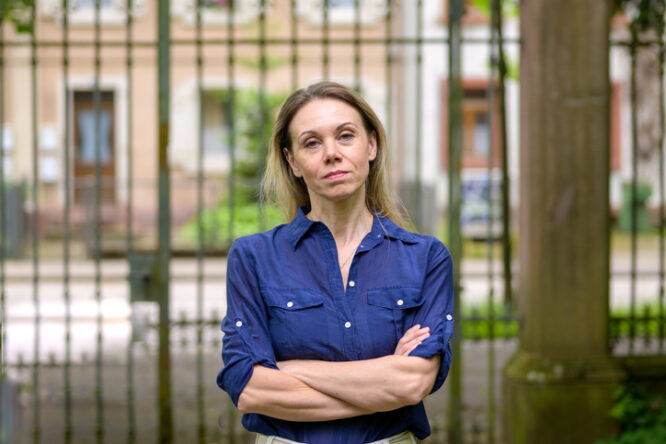
It feels harmless to say, but it can also keep you stuck. If you keep telling yourself that your default setting is analysis paralysis, you’ll keep spinning in circles because you think that’s just who you are. Try changing it from identity to habit. Like, “I tend to overthink, but I’m practising acting on what feels good instead of what feels perfect.” That small tweak pulls you back into control.
8. “I hate my…” (fill in the blank).
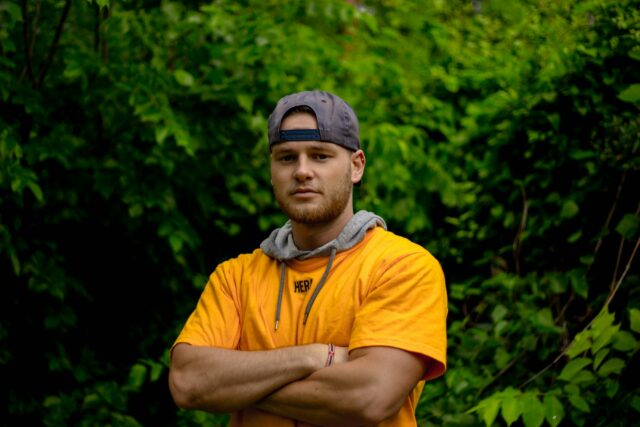
The stuff you say about your body matters, even if no one else hears it. Your body hears it. And it’s hard to treat something with care when you’re constantly criticising it. You don’t have to fake body love. But neutral statements help. Like, “My body’s carried me through a lot,” or “I’m doing my best to show up anyway.” It’s less about worshipping your thighs and more about not bullying yourself before 9am.
9. “I’m not creative.”

Creativity isn’t about being artsy—it’s just thinking in new ways. Saying you’re not creative usually means you’re afraid of looking silly or getting it wrong. But avoiding it entirely cuts you off from stuff that could feel fun or fulfilling. Even just saying, “I haven’t explored my creative side much,” sounds different. It gives you permission to try without needing to be brilliant at it from day one.
10. “I’m fine.”

Sometimes you are fine. Other times, it’s just the auto-reply we use when we don’t want to explain ourselves. Eventually, it becomes a wall. You don’t need to pour your heart out every time someone asks how you are. But if you’re not fine, it’s okay to say, “It’s been a weird day,” or “Not amazing, but getting through.” Honesty builds better connections, even relaxed honesty.
11. “I’m just bad at relationships.”

This usually means “I’ve been hurt” or “I’ve picked some difficult situations.” It’s not a permanent condition. But framing yourself as the problem makes it hard to even believe you deserve something better. Try, “I’ve made some tough choices, but I’m learning more about what actually works for me.” It makes space for love that isn’t about fixing or proving, just growing into something healthy.
12. “I failed” vs. “That flopped.”
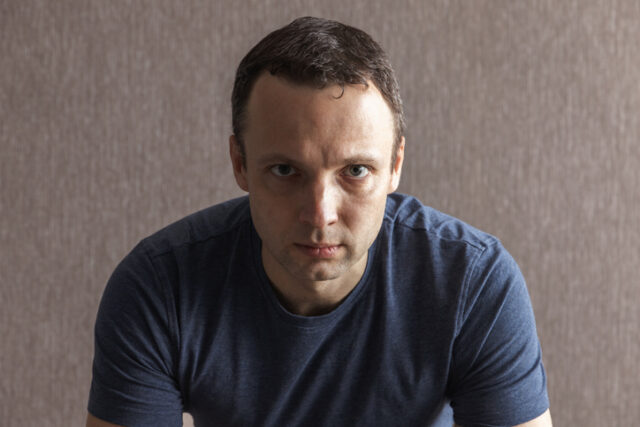
One sticks to your identity. The other sticks to the situation. Failing at something doesn’t make you a failure, but saying it like that makes it personal. If something didn’t go to plan, say so. “That didn’t go how I wanted” feels true without making it about who you are. It keeps your confidence intact while still being real about the mess.
13. “I’m working on it.”

This phrase is underrated. It doesn’t overpromise, doesn’t fake it, doesn’t pretend everything’s fixed. However, it tells your brain: I’m not giving up on myself. It’s one of the simplest, kindest things you can say. It creates a little breathing room in the middle of whatever mess you’re in. Sometimes, that’s all you need to keep going.



